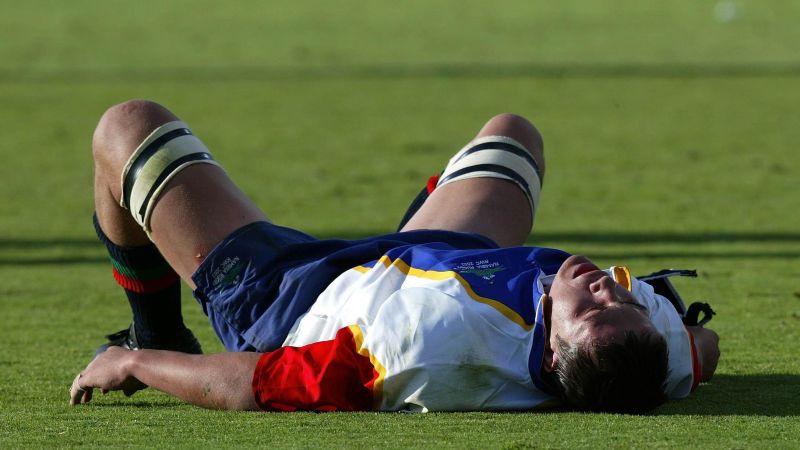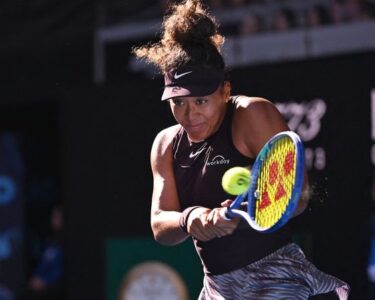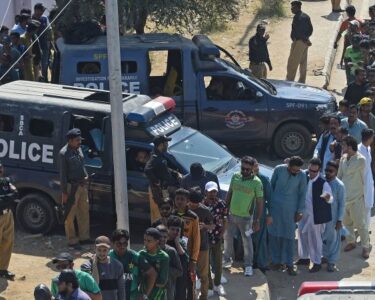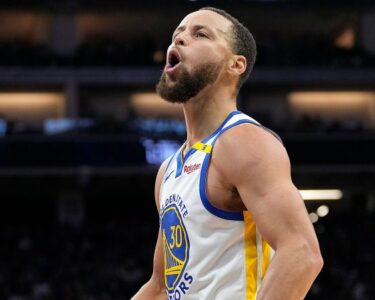CNN
—
Namibia has always been an underdog at the Rugby World Cup.
With a population of just over 2.5 million – akin to that of Qatar, Botswana and Gabon – it doesn’t have the same talent pool as some of the behemoths of the sport.
Just reaching the pinnacle of international rugby in 1999 was a massive achievement for a country which has long lived in the shadow of its neighbor, South Africa, on the sporting stage.
So when the team arrived to Australia in 2003 for the Rugby World Cup, the novelty of performing in front of the world hadn’t worn off for many of Namibia’s players.
“For us, it was just to be at a World Cup and make our land, Namibia – that is also in our nation’s song – to make our country proud,” former lock Eben Izaacs told CNN Sport.
“It was a proud, proud moment for us to be there in be in Australia, to be representing our country.”
While the positives associated with the tournament are palpable, Namibia’s performance in 2003 has an unwanted record attached to it which came during the team’s third group game.
Facing host Australia in Adelaide, Namibia was beaten 142-0, the largest winning margin in Rugby World Cup history.
Australia – which went on to lose in the final against England – ran in 22 tries, with Chris Latham picking up five and both Lote Tuqiri and Matt Giteau recording hat-tricks.
Mat Rogers, with two tries and 16 conversions, scored 42 points himself – more than Namibia scored in the whole of the tournament.
However, the convincing nature of the defeat didn’t dampen the memory for Izaacs, in particular given the obvious disparity between the two sides.
“2003 was really a good experience for us. Most of us at that stage, I think we only had maybe three players who were in the professional game,” Izaacs explained. “All of us were … in the local leagues in Namibia.
“But what an occasion just to be at a World Cup, no matter what the score was. The score, yeah, it was a record score against us but … there were only three professionals in our team and most of the other nations were already professional in 2003. For us, it was a proud moment just to play in the World Cup.”
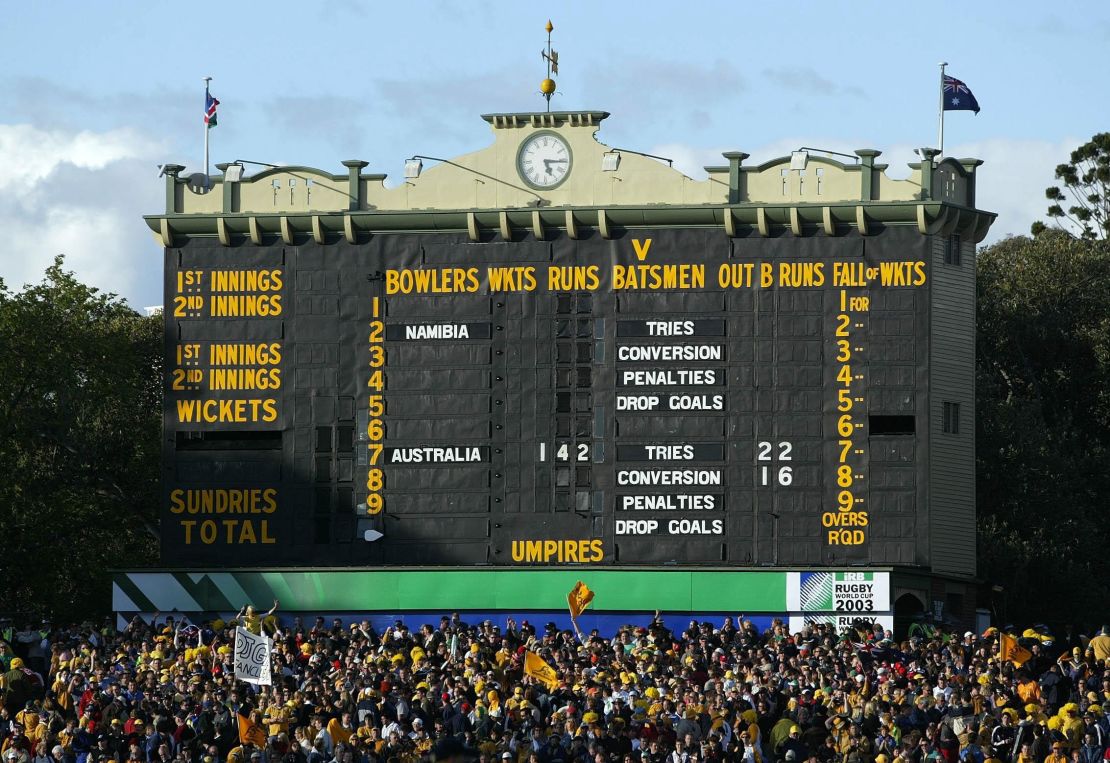
‘What chance did we have?’
Expectations were realistic amongst the Namibian squad heading into the 2003 Rugby World Cup.
Playing in just their second edition of the tournament, the journey across the Indian Ocean was about learning and flying the Namibian flag on the biggest stage possible.
Jurgens van Lill – a former Namibia international who played no. 8 in the game against Australia in 2003 – said he and his teammates were pragmatic about the team’s goals heading into the tournament. “We never assumed that it would be easy but still hoped that we could do well,” he told CNN Sport.
But from the start, results weren’t favorable to Namibia, as the Welwitschias – a plant endemic to the Namib Desert which gives its name to the nation’s rugby union team – first lost 67–14 to Argentina, then 64–7 to Ireland the following game.
Although the majority of the team wasn’t playing in professional leagues at that time, the players gained valuable experience at the top table of international rugby, despite the heavy defeats.
So when Namibia took to the field against Australia in its third game of the tournament, beating one of the favorites to win the Webb Ellis Cup was a long shot.
“We knew coming off losses against Argentina and Ireland that Australia would be the most difficult challenge that we as a team ever faced,” van Lill explained. “After all, with homeland advantage and [being] favorites to win the World Cup that year, what chance did we have?”
And within two minutes of kick-off, any hope of a result looked a long way off as Latham touched down for his first try of the afternoon.
Australia earned the bonus point — awarded when a team scores four or more tries in a match — just nine minutes later when Stirling Mortlock touched down.
“After the first 10 minutes, we knew it was going to be a hard day at the office,” van Lill remembered.
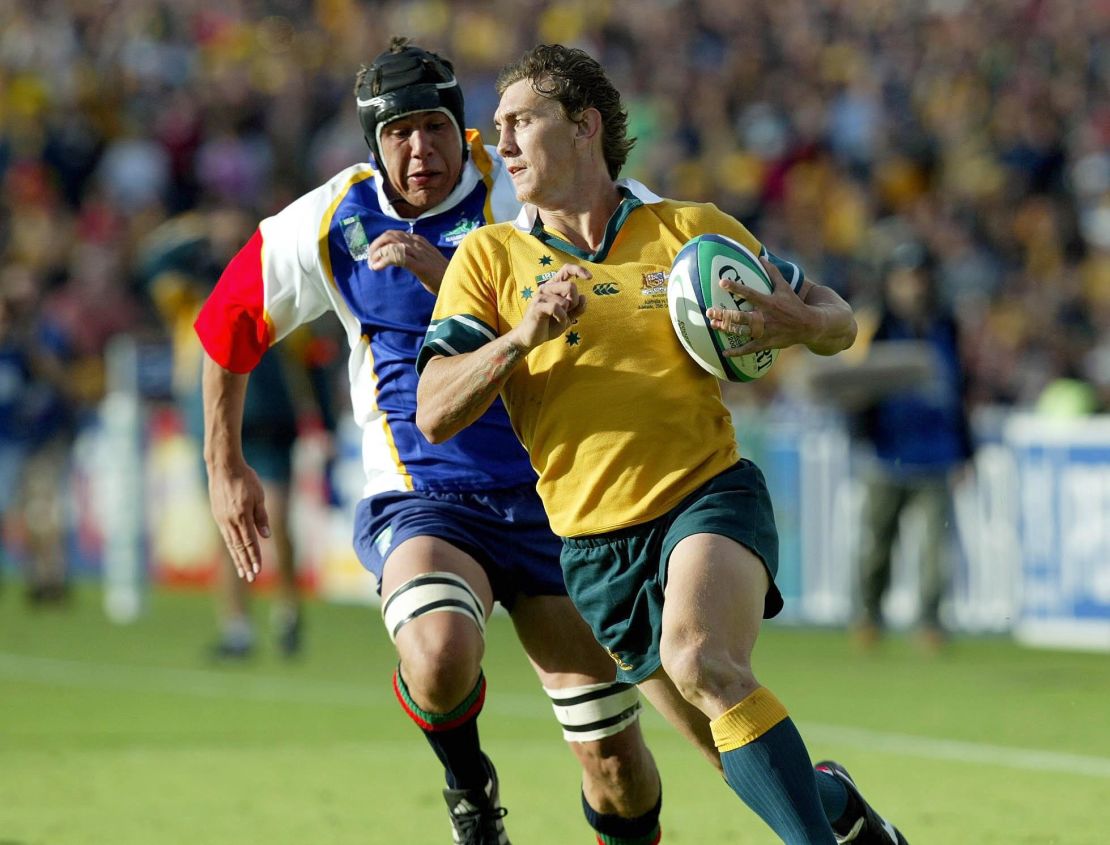
At half-time, Australia had scored 69 points. After 53 minutes, the century had been reached.
Izaacs explained that Namibia struggled to deal with the speed of the Australia team, leading them to be dragged all across the pitch, exposing holes in their defense.
“I think at that time, Australia was a classy side. They just put two players in the ruck and then they put the ball wide with Chris Latham, Mat Rogers – they had a classy backline,” he said. “And that’s why they shifted the ball quickly in the backline and also their loose forwards were playing nicely at that stage.
“I think that we couldn’t cope with the pace of the game because we arrived at the ruck, the ball was already being played out and, on the day, they were very, very quick and everything they did, they did with perfection and we couldn’t cope with the pace of the game, that was the problem.”
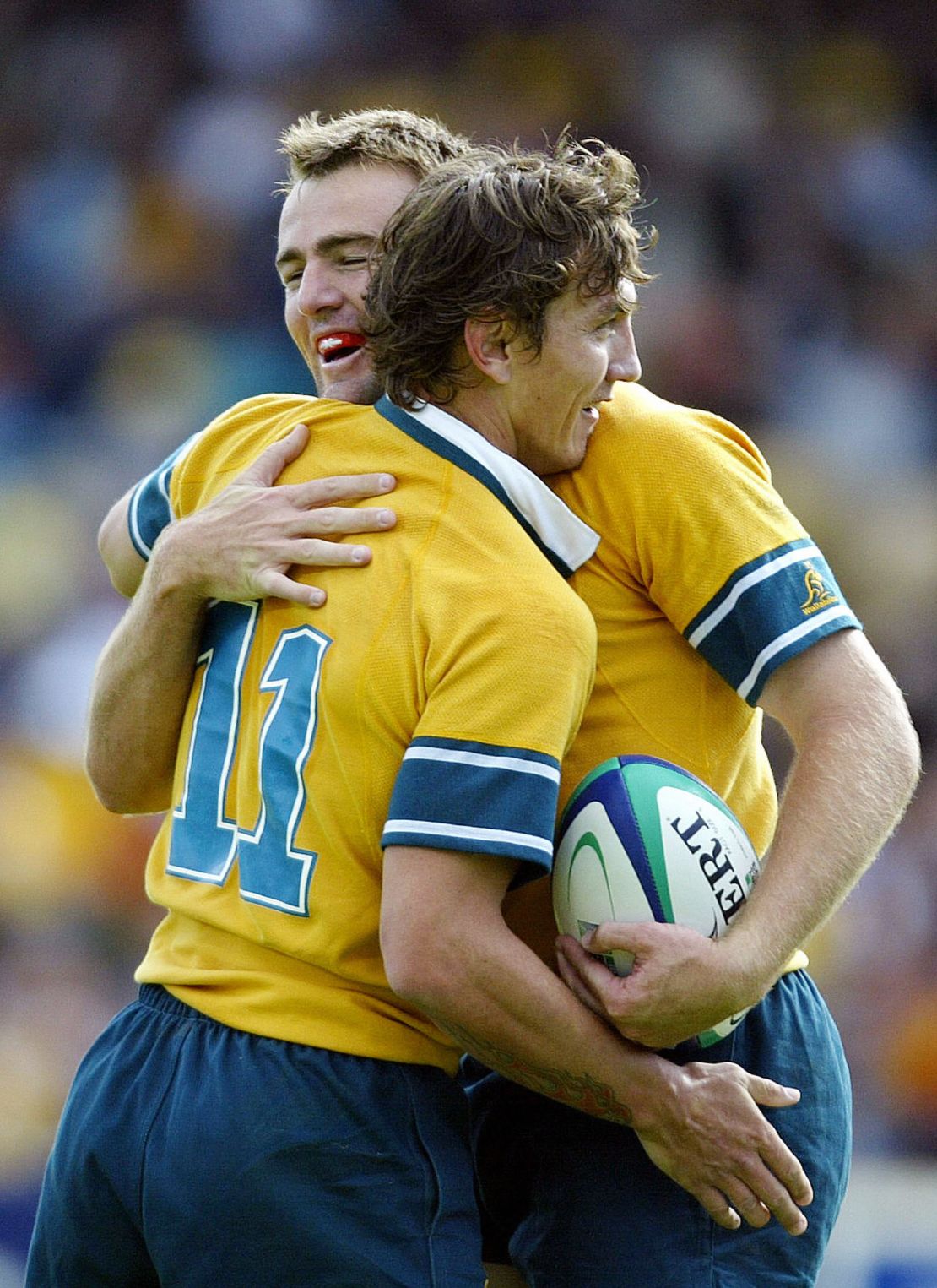
In the end, the margin of the defeat of 142 points was a record for a Rugby World Cup match.
Although in certain cultures running up a huge scoreline can be deemed poor sportsmanship, Australia showed no remorse in powering home the tries against a struggling Namibia.
But, 20 years on, van Lill doesn’t begrudge them for doing so.
“I feel that you always field your best team. If you are on the winning end on the day, why not put on a show? I am sure that our neighbors, the Springboks, [wouldn’t] let up on the Aussies in a try fest.”
Although the heavy manner of the defeat doesn’t appear to have weighed heavily on the shoulders of Izaacs or van Lill – Izaacs proudly shows off the Australia jersey he swapped with his opposite number, Nathan Sharpe, after the match – the same can’t be said of some of their teammates.
“To this day, if I hear ‘Thunderstruck’ by AC/DC, I hate it,” former Namibia prop Kees Lensing told Rugby World in 2019.
“It’s nothing against the band, but that was the last song the boys played as we got off the bus for that game. Every time I hear the song now I think: ‘Sh*t!’ A lot of kids think: ‘Oh, that song will get me up and going,’ but for me it has a totally different meaning.”
Growth
Twenty years later and Namibia still hasn’t won a Rugby World Cup game. This has continued in France this year having lost to Italy, New Zealand and the host nation so far, but the team has qualified for every edition of the tournament since 1999.
There is a strong line of continuation between old Namibia squads and this year’s – Izaacs’ son, Alcino, is part of the squad in France, and the same is true for two other of his 1999 Rugby World Cup teammates, Deon Mouton and Cliff Loubser (their sons Gerswin and Cliven are also in the 2023 squad).
While results haven’t necessarily improved, Izaacs says that rugby in the country has come a long way since his day.
“This time around in 2023, our team is better prepared, we’ve got a nice coaching staff with Allister Coetzee. So it’s nice to have them and you can see that they’re better trained. Most of our squad now in 2023 is playing professional rugby in America, in England, in South Africa, so I think they are better prepared for this World Cup.
“I think they will do better. Our main priority for this World Cup is just to beat one team and I think our aim is to go against Uruguay to beat them.”
Van Lill’s younger brother, PJ, is also part of the Namibia team; at 39 years old, PJ is the elder statesman of the group.
“Obviously, it makes us proud to be part of the World Cup,” said the older van Lill. “But in the end, the world of rugby as well as Namibian rugby has to do more to develop the game in Namibia between World Cups. That’s the only way we can do better in the future.”


